One tick of the clock after 12 am on 31st December changes the year. The new year comes with new hopes. People make new year's resolutions and start a new year with celebrations. Some sensitive people recall their life and start the new year improving their lives. Many people plan to go abroad for higher education. Some people think of changing a job and increasing their skill set, and some decide to work on their health.
On the corporate level, companies define objectives for the next year and come up with a strategy that can help employees achieve the target. The HR of the companies defines the policies and procedures for the employees. For example, if there were 10 annual leaves, they can extend it to 15 days. In addition, companies announce annual bonuses for employees. The new year is a time of rejoicing and celebrating. People from around the world celebrate the new year by arranging parties, watching fireworks, and greeting each other happy new year in a language that they understand.
The history of new year celebrations dated back 4,000 years from the time of ancient Babylon. They used to celebrate the new year in late March on the vernal equinox day. They celebrated the new year with the festival known as Atiku. During this festival, they gave importance to the Marduk sky God over another evil goddess.
In addition, the new king was crowned and if there was an old dynasty then it was renowned symbolically.
You will be surprised to know that Julius Caesar added 90 days to the year 46 B. C to align it with the Roman calendar. In formal civilizations, the first day of the year is established based on astronomical or agricultural events. For example in Egypt, the annual flooding of the Nile is associated with the rising of Sirius.
The old Roman calendar comprises 10 months and 304 days. This calendar started with the beginning at the vernal equinox. It was established in the 8th century BC by Romulus, the founder of Rome. Later on, king Numa Pompilus added two months Januarius and Februarius. For many centuries, the calendar was not followed according to astronomy. Therefore, in 46 B.C. the emperor Julius Caesar took the assistance of prominent astronomers and, mathematicians and came up with a new Julian calendar. It resonates more with the Gregorian calendar that is followed in many countries.
In the new calendar, Caesar suggested January 1st as the first day of the year. The name January was derived from the name of the God Janus. This word has two perspectives, one is looking at the front and the next is looking at the past. Romans used to celebrate the new year by giving gifts to each other, decorating their homes, and throwing parties.
In Medieval times, the Christian leaders replaced Jan 1st, the first day of the year with other days like Christmas 25th Dec and March 25th, the commemoration of the annunciation. In 1582, Pope Gregory XII again announced Jan 1st, the first day of the new year.
To strive in the competitive world, you should know how people around the world celebrate and wish New year to each other. It is the season of holidays. If you are in the retail industry then you can offer different sales to potential customers and greet them with happy new year in a language that they understand. Let's dive into the celebrations of a few of the countries.
The New Year’s Eve in Spain is called Noche Vieja, the old night. People stay at home at midnight. As the clock strikes 12, they eat twelve grapes. According to Spanish people, eating grapes bring happiness, prosperity, and good luck throughout the entire year. Some people went out and gathered at the main central plazas. They dance and celebrate the new year till the morning.
Happy New Year in SpanishPeople greet the happy new year in Spanish as Feliz año nuevo.
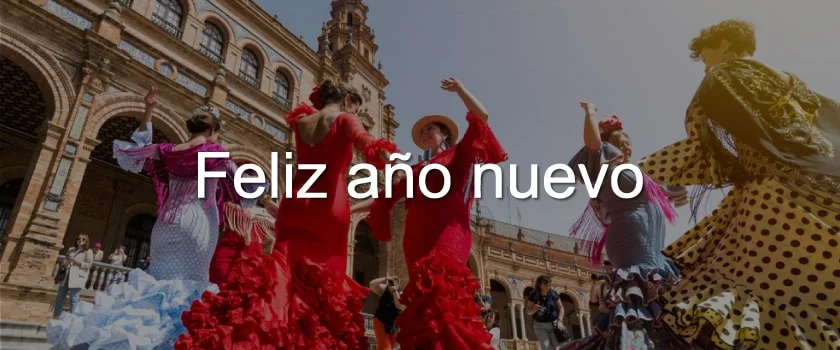
Italian people enjoy the new year through fireworks displays, bonfires, festivals, concerts, and parties. They arrange lavish feasts with meals like Lenticchie (lentils) and Cotechino (Italian sausage). They drink wines such as spumante or prosecco to say goodbye to the previous year and welcome the new year.
Happy New Year in Italian They greet the happy new year in Italian by saying, Buon Anno.
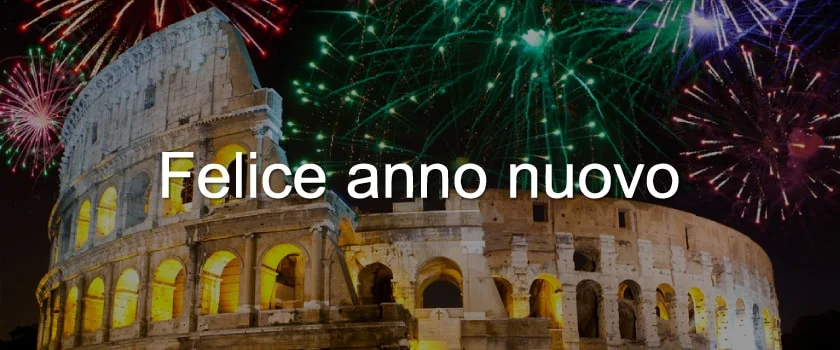
German people spend new year's eve and greet the new year in many ways. They arrange parties with local music bands. Moreover, through Silvester's dinners at restaurants and parties with their family and friends. They will drink wine and champagne at midnight.
Happy New Year in German German people greet each other happy new year by saying Frohes Neues Jahr.
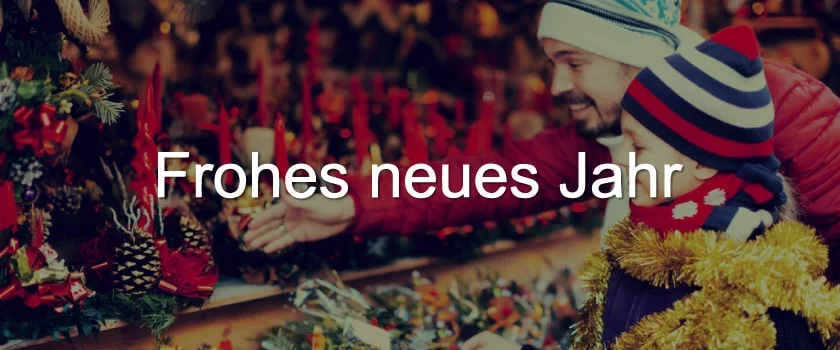
In the UK, the new year is the most celebrated holiday in the world. Just like other countries, they start new year celebrations on new year's eve on December 31st. They arrange new year parties at homes, bars, and restaurants and open bottles of champagne as the clock strikes 12. They greet the new year by saying Happy New Year.
People of France celebrate the new year at midnight with family and friends. The sky is full of public and private fireworks. People drink champagne like white wine or hot wine called vin chaud. They also sing a new year song Chanson du Nouvel to welcome the new year. People of France observe a special tradition in the Hautes-Pyrenees region which is close to the Spanish border. People go to the church on new year's eve and then walk to the vineyards in a torchlight procession.
Happy New Year in French They greet each other Happy new year by saying bonne année.
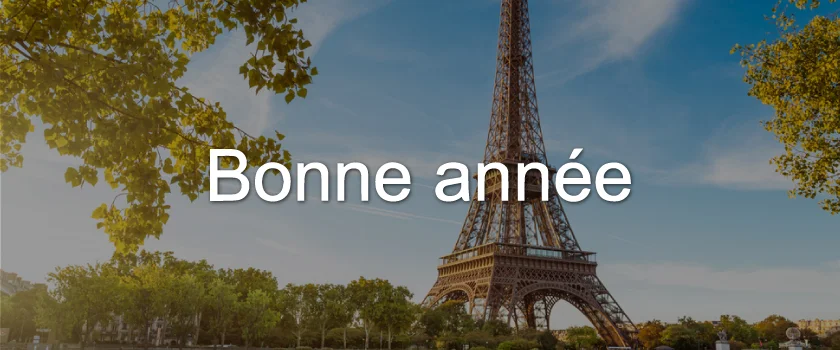
On New year's night, there is excitement in the atmosphere of Dubai. You can see captivating fireworks in the sky. In addition, the people of Dubai arrange lavish parties and go to clubs for new year celebrations. The residents of Dubai also go on luxury dinner cruises, helicopter rides thrills, desert safaris with dune drives, and indulge in many more activities to celebrate the new year.
Happy New Year in Arabic People of Dubai greet each other happy new year by saying īd raās al-sanah
There was a time when Sweden used to celebrate a new year a week before other countries. This is because Sweden was the last country that changed from the old Julian calendar to the Gregorian calendar. The people of Sweden celebrate the new year with fireworks that start at midnight. In addition to it, they arrange shellfish dinner on New year’s Eve with delicious snacks and bottles of wine.
Happy New Year in SwedishThey greet each other happy new year by saying gott nytt år.
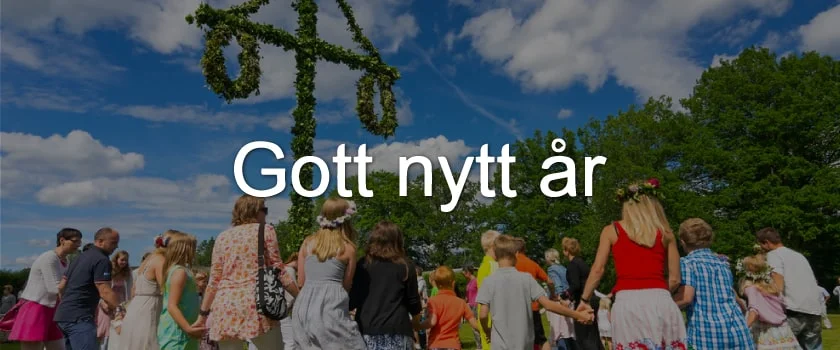
The people of Denmark start the new year with one big party. Friends and families get together at the new year's dinner and listen to the speech of the Queen at 6 pm. Moreover, people watch a black and white film called Dinner for one at Copenhagen’s town hall square. People watch the fireworks from the time when the sun goes down till the time it appears on the new year.
Happy New Year in Danish They wish a happy new year by saying godt nytår.
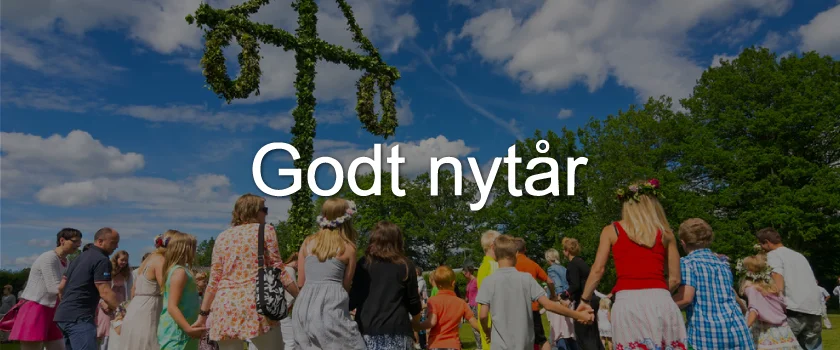
Japanese give great importance to the new year. For them, it is the time of renewal and purification. They call new year celebrations as shiatsu, and new year's day as gantan. Japanese people visit a shrine on new year's eve and this custom is called Hatsumode. Japanese people visit shrines on the 1st. 2nd and 3rd to pay respect and pray for a happy and healthier new year.
Happy New Year in Japanese They say Akemashite omedetou gozaimasu to wish a happy new year.
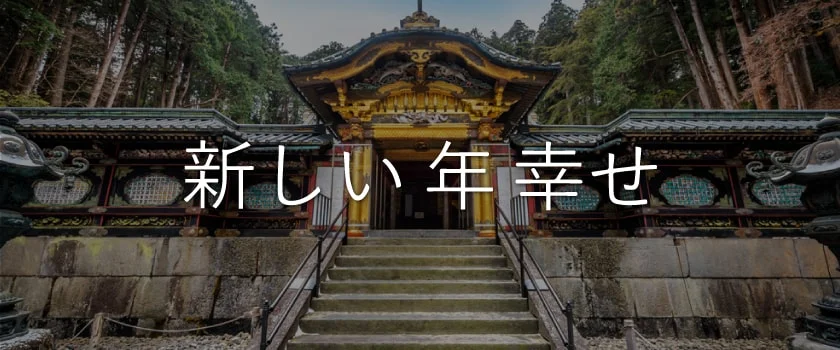
The Finns people save energy for the new year celebrations after Christmas. Some people sit in front of the TV to listen to the president’s speech and to watch vintage movies. While others gather for feasts, dance parties, fireworks, and concerts and drink lots of alcohol. Many others enjoy the new year in nature with Northern lights on the skies.
Happy New Year in Finnish They greet the new year to each other by saying Hyvää uutta vuotta.
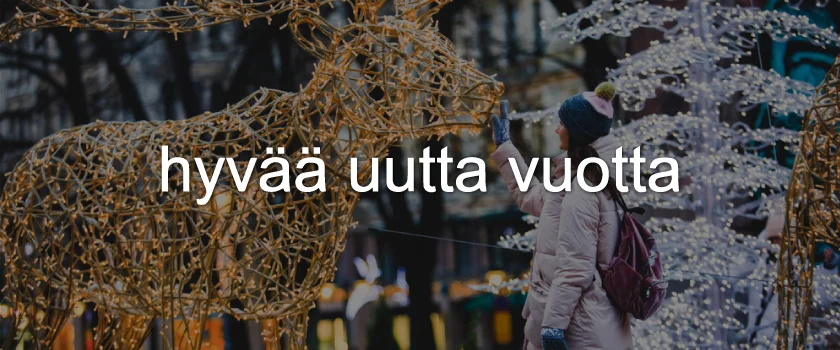
Do you know that New year is celebrated twice in Russia? Apart from 31st December, they celebrate the second new year on 14th January as per Julian or the Orthodox calendar. To celebrate the new year on the 31st of December, many Russians go out to attend concerts and enjoy fireworks displays at Red Square. Many people also arrange dinners at home. Russian people also watch the speech of the president that is broadcasted on their TV at local time 11:55 am. In this speech Russian president discusses last year's achievements.
Happy New Year in Russian Russian people say scha-sleè-va-va nò-va-va gò-da to greet the new year.
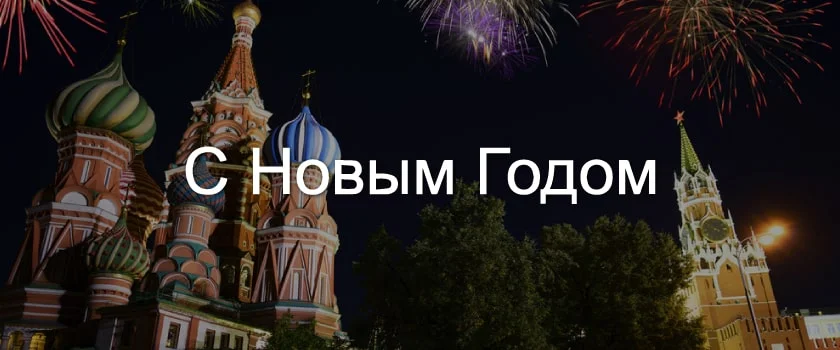
Singapore has a very diverse culture. The efforts of different people in the new year celebration are astonishing. People in Singapore arrange extravagant parties, and restaurants offer different types of delicious foods. The skies are full of fireworks displays. In addition to it, the environment of Singapore is full of fun and excitement. English, Malay, Tamil, and Mandarin Chinese are the four official languages of Singapore.
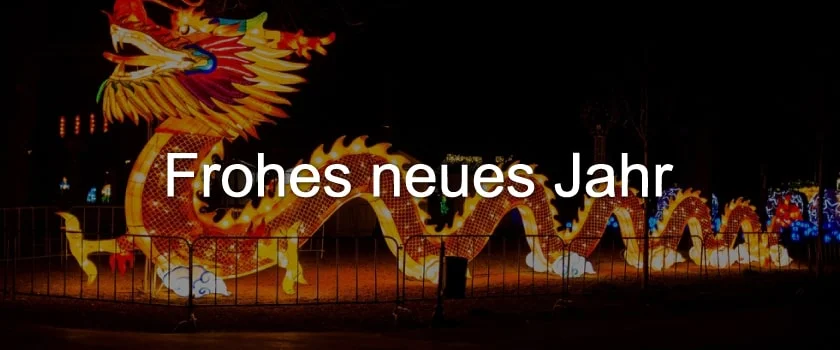
Happy New Year in Malay, Tamil, Mandarin Chinese
Malay: putuvatsarāśansakaḷ
Tamil: Puttāṇṭu vāḻttukkaḷ
Mandarin Chinese: Xīnnián kuàile
Thailand
Many people asked the question that whether the Thai people celebrate the new year like a traditional Thai year on the 13th of April. It is called Songkran. Thai people celebrate the new year. twice. They have been celebrating the New year on 1st January for around 70 years. The Thai government announced a holiday for Thai people from 31st December to 3rd January. During this time people travel to their hometowns to visit their parents. The organizations and companies arrange new year parties for their employees and at these parties they exchange gifts.
Happy New Year in Thai They say sawad dee ppee mai to greet the new year everyone.

Filipino people also celebrate the new year with great fervor. They arrange a midnight meal on new year's eve and call it a Media Noche. They celebrate the whole night and light up firecrackers and fireworks. Moreover, they make a lot of noise. According to them, making a lot of noise drive evil spirits.
Happy New Year in Filipino They greet the happy new year by saying Maligayang Bagong Taon.

Do you know that celebrations in Portugal are known as Reveillon? Portuguese people celebrate the new year by toasting champagne glasses with each other. In addition to it, they bake Bolo Rei which is the traditional Portuguese cake and a special new year dessert. They eat 12 raisins for good luck on the first day of the year.
Happy New Year in Portuguese They greet the new year by saying ano Novo.
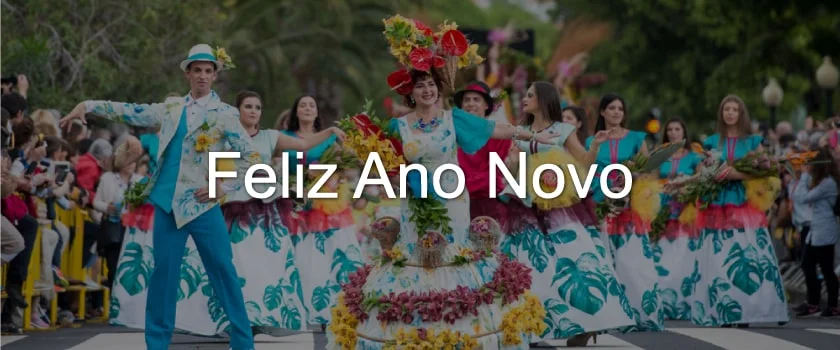
All the countries around the world celebrate the new year according to their traditions. The objective of new year celebrations is to start a new year with new hope and promises. Many people make a new year resolution to start a year with some productive objective. We are living in a globalized world, where we need to deal with people on a corporate and personal level. Greeting your family and friends in the language that they understand is a very good gesture. If your family and friends are living in different countries and you don't know how to greet them in their native language then you can take the assistance of Mars Translations. Let's celebrate the coming year with happiness and greet each other in the language that they understand.

dwg: It means a drawing file save format created by AutoCAD, and now has been the standard format of 2D
Read More
dwg: It means a drawing file save format created by AutoCAD, and now has been the standard format of 2D
Read More
Mars Translation can help you extract the texts in a DWG file and convert them into a Word file so
Read More
dwg: It means a drawing file save format created by AutoCAD, and now has been the standard format of 2D
Read More
dwg: It means a drawing file save format created by AutoCAD, and now has been the standard format of 2D
Read More
MarsTranslation can help you extract the texts in a DWG file and convert them into a XML file so that
Read More
If you are a designer you are bound to find yourself in situations when you have to convert your DWG
Read More
dwg: It means a drawing file save format created by AutoCAD, and now has been the standard format of 2D
Read More
MarsTranslation can help you extract the texts in a DWG file and convert them into a Word file so that
Read More


Document Translation
Professional document translation by native expertsApp Localization
Get more downloads by adapting your app for different target marketsVideo Translation
Multilingual translation and subtitling servicesWebsite Localization
Adapt your website into multiple contexts for global reachSoftware Localization
Adapt your software for global usersGame Localization
Reach new players with localized gameplayMTPE
Refine AI translations for natural fluencyBusiness Translation
Professional translation for business documents and websitesDTP & File Conversion
Professional DTP and File conversion, supporting multiple file formatsProofreading
Perfect your content with expert review© Copyright 2026 MarsTranslation